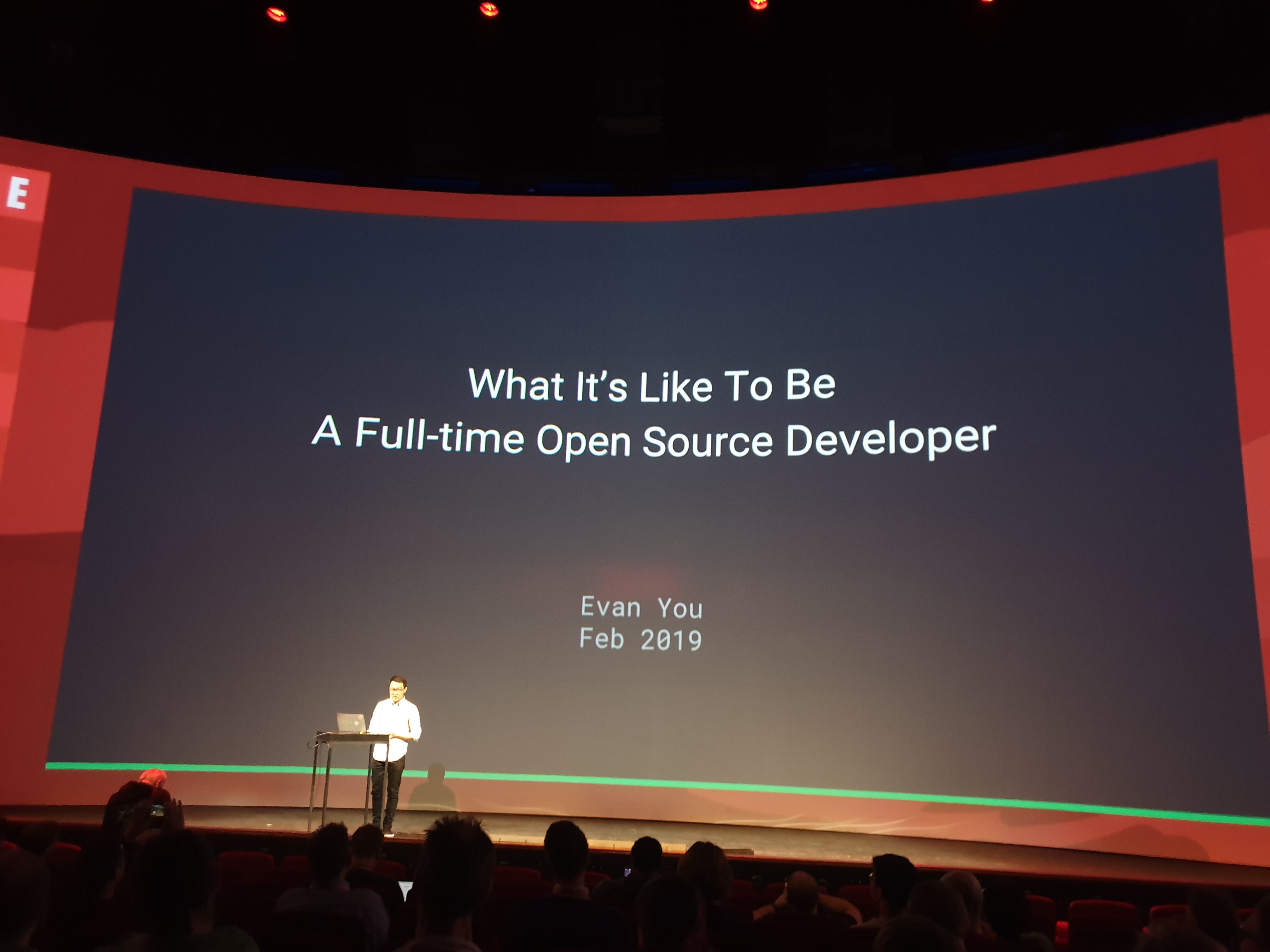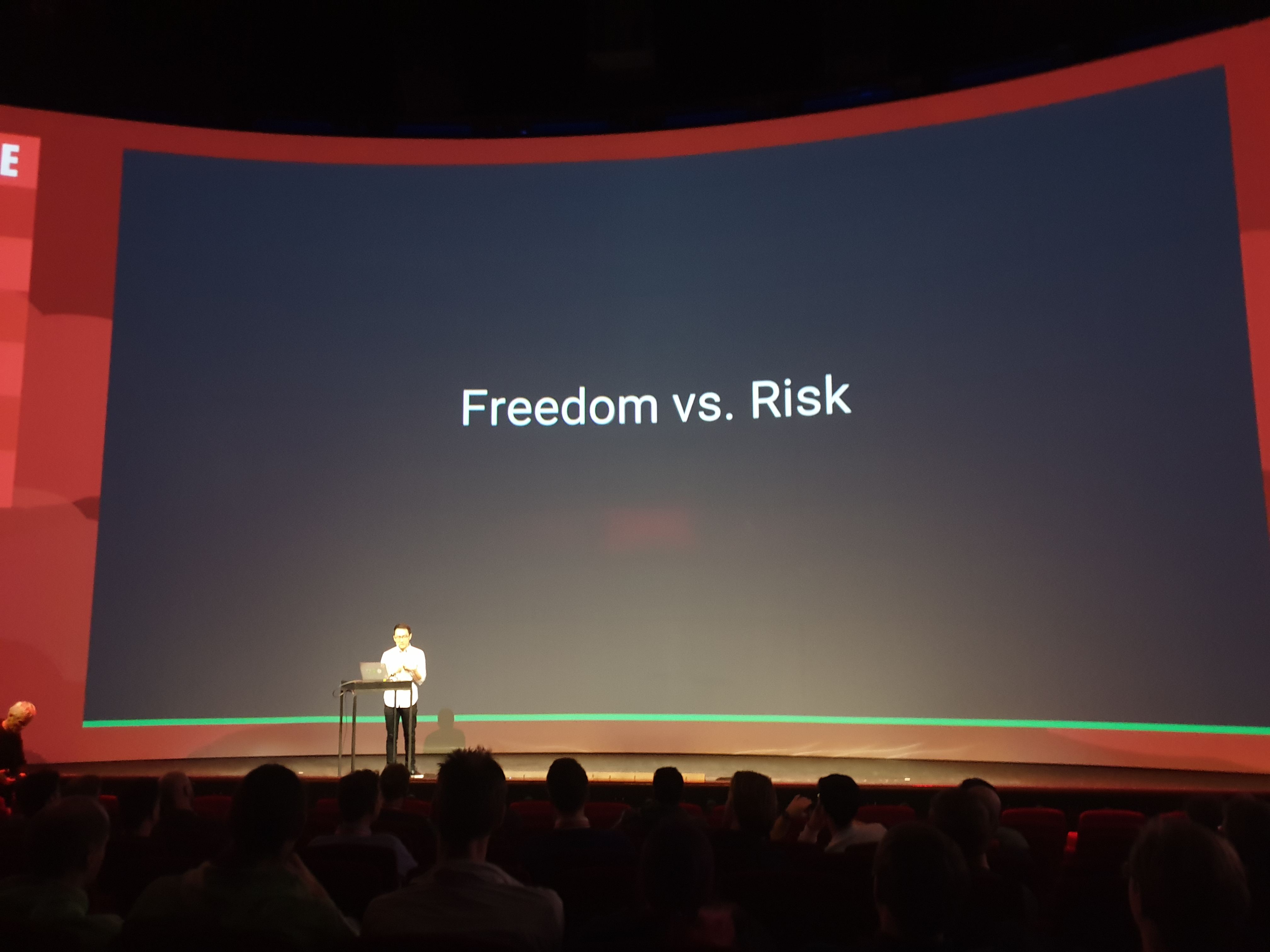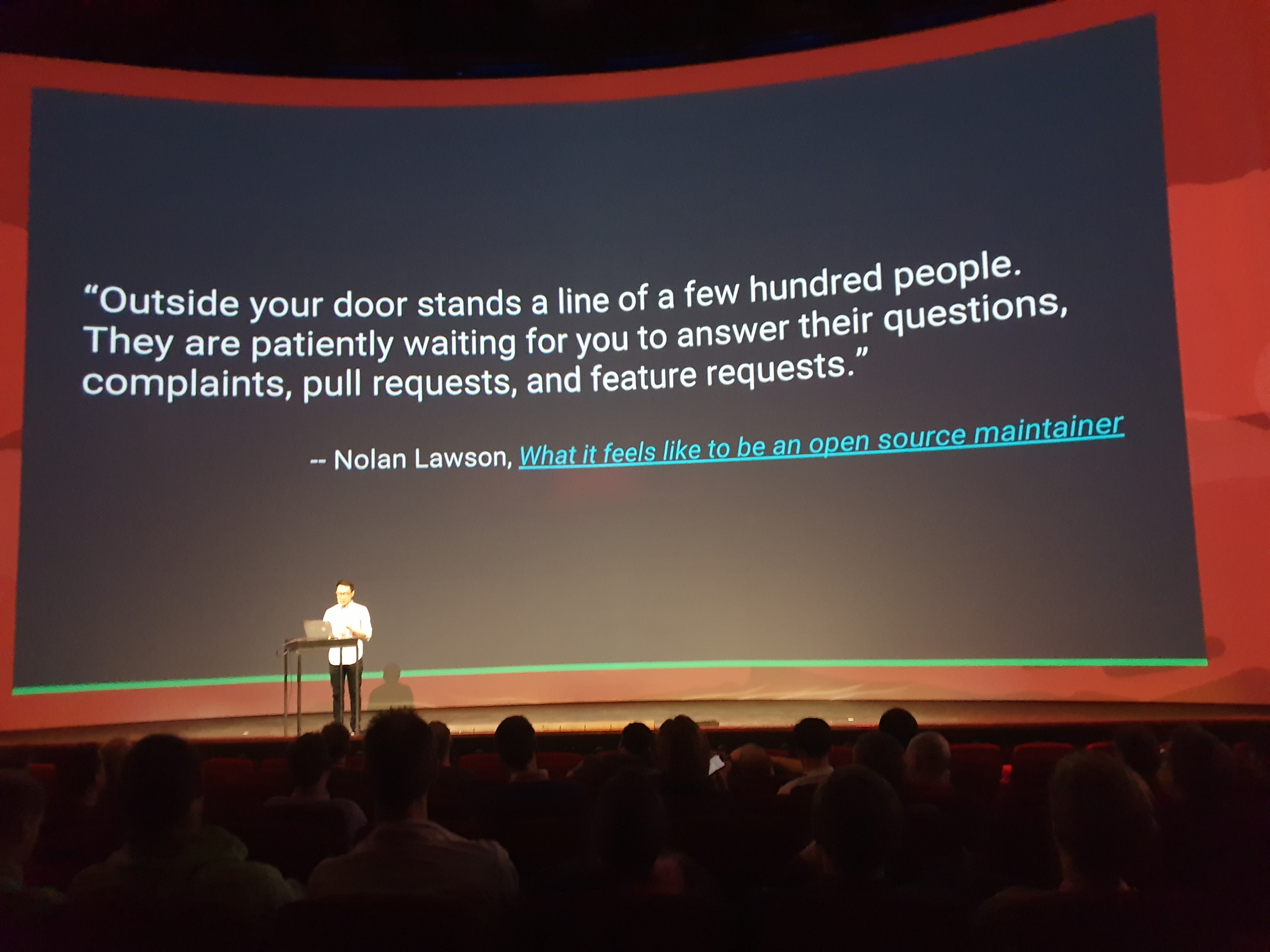VueAmsterdam Experience and Talks Summary (Part 4)

Summarize with AI:
Sponsored by the Kendo UI for Vue team
Want to learn more about creating great Vue web apps? It all starts out with Kendo UI for Vue - a complete UI component library that allows you to quickly build high-quality, responsive apps. It includes everything you need, from grids and charts to dropdowns and gauges.
We on the Kendo UI for Vue team are committed to bringing you the latest tips and tricks in the world of Vue development. We hope you enjoy the post!
Were you at VueAmsterdam, or did you wish you were? Though some time has passed, the lessons learned there are still invaluable. Let's take a moment to look back at the event and a major talk by Vue creator Evan You.
Welcome to the third part of my VueAmsterdam 2019 summary. I'm just going to jump right in, but if you missed the previous parts, you can find them here: Part 1, Part 2 and Part 3.
What It’s Like to be a Full-Time Open-Source Developer – Evan You

Following Matthew’s great talk about Gatsby, which you can read about in the previous part, Evan You entered the stage to talk about what it’s like to be a full-time open-source maintainer. For those who may not know, Evan is the creator of Vue.js, one of the most popular JavaScript frontend frameworks.
At the start Evan explained a bit about his past, what he did before he became a full-time maintainer, and the reasons for it. After finishing school, Evan worked at the Google Creative Lab and in his next job worked on Meteor.js.
Work on Vue started while Evan was still at a full-time job. When Vue’s popularity grew, he switched to working on it full-time as it required more time to work on it.
Freedom
There are quite a few pros and cons of being a full-time open-source maintainer. Evan started with “Freedom” as the first benefit. Working for yourself allows a lot of flexibility because you can decide what you work on, when you do it, and where you do it. If you work for someone else, then others will be deciding for you and sometimes you might not be passionate enough about projects you get as a full-time employee.
Impact & Fulfillment
Another benefit is “Impact & Fulfillment.” Evan worked at Google after school, but considering how big Google is, it felt like he was just doing a small part and there was not enough of impact per time spent. In addition, you have to work very hard to earn your place to be able to create more impact. However, when you work by yourself, you often can see impact much more quickly.
People
Being an open-source maintainer allows you to meet a lot of people, both online and offline. Besides open-source contributors who work together, there are also users, communities, and people meeting at conferences. Thanks to Vue, Evan was able to make a lot of connections and work with other Vue core team members and contributors.
Fame
Due to Vue’s popularity, Evan started to stand out as the one who created it. When he pushed his first commit, he hoped the project will be well received and did initially obsess about keeping track of followers and star counts, but only for a while. Later it started to be a bit of a burden as publicity can attract more people to look at what you’re working on. This in return can bring extra pressure, which can affect personal life.
Freedom vs. Risk

There are quite a few nice benefits, but there are also things that are problematic. First of all, you take all the risk on yourself as you are both an employer and employee. Sometimes even if you do a great job, you might not get paid appropriately for it if your work is not sustainable.
What’s more, if you decide to switch to being a full-time open-source maintainer, but something does not work out, it’s important to think about how would you get back on track. Evan highlighted it is good to understand what you are really looking for before you make a jump and switch your career path.
Impact vs. Responsibility

With great power comes great responsibility. Evan brought up a quote by Nolan Lawson, which explains what it feels like to be an open-source maintainer. Maintainers of Vue have a lot of responsibility for the project, and a lot of people would like to get help from them and answers to their issues as soon as possible.
There is also a mental challenge of self-imposed guilt, as there may be too many issues at one time to handle them all quickly, and maintainers could feel like they are letting their users down by not providing help quickly enough. Guilt like this can lead to deteriorating work-life balance if one tries to overwork themselves to satisfy others’ needs. This can lead to burnout.
To deal with that, Evan mentioned he tries to acknowledge work and responsibility boundaries, set clear priorities, as well as trust and delegate some work to others.
People vs. The Social Overhead
From the point of view of a person who is dealing with a maintainer, it seems to be a one-to-one interaction as the person is talking with a maintainer. However, from the maintainer’s perspective, there are many more interactions as they have to deal with a lot of users and their issues. Some issues reported might not even be related to Vue itself, or an issue created might not have enough context to figure out what the problem is. Therefore, to deal with that, a set of guidelines and a process to follow were set up before users can create an issue to make it easier for maintainers to help quickly.
Publicity & Pressure
Vue is at the stage in which there is no need to publicize it anymore, as it already is well known and has more GitHub stars than both React and Angular. Instead, Evan wants to focus on improving it and making it even better for users.
However, there is still pressure created as there are a lot of people talking about it and comparing various frameworks. Therefore, focusing on priorities and what really matters to the project is the way to go in order to keep distractions away.
Criticism & Negativity
No matter how good something is, there will always be someone who will be negative and not satisfied with it.
Not overusing social media is one of the steps recommended by Evan to deal with hateful and meaningless comments. That is not surprising, especially considering the recent outrage and misinformation which was going around about the new function API. However, not all criticism should be ignored, as there are also valid cases that can be an opportunity for an improvement.
Another recommended way to deal with all of this is to turn off push notifications as they can be distracting.
Conclusion
I found Evan’s talk quite interesting. Open-source maintainers do a huge amount of great work and shouldn’t have to deal with unreasonable demands and spite. Especially since a lot of times they work without any reward for the time spent. Therefore, the next time you want to talk with an open-source maintainer and need something, don’t forget they often spend their free time just to help you.

Thomas Findlay
Thomas Findlay is a 5-star rated mentor, full-stack developer, consultant, technical writer and the author of “React - The Road To Enterprise” and “Vue - The Road To Enterprise.” He works with many different technologies such as JavaScript, Vue, React, React Native, Node.js, Python, PHP and more. Thomas has worked with developers and teams from beginner to advanced and helped them build and scale their applications and products. Check out his Codementor page, and you can also find him on Twitter.

